Click on images to enlarge
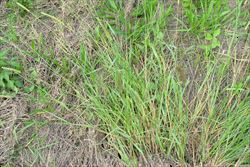
habit (Photo: Sheldon Navie)
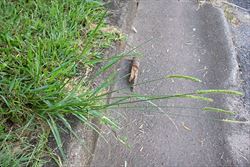
habit (Photo: Sheldon Navie)
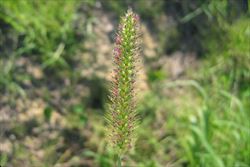
seed-head (Photo: Mellisa Offord)
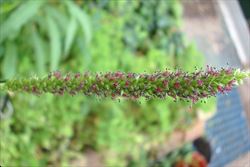
close-up of seed-head in flower (Photo: Sheldon Navie)

mature seed-head (Photo: Sheldon Navie)
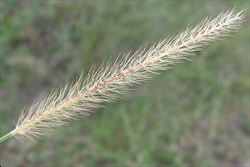
old seed-head with persistent bristles (Photo: Sheldon Navie)

habit of yellow bristlegrass, Setaria pumila subsp. pallidefusca (Photo: Sheldon Navie)
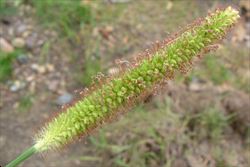
seed-head of yellow bristlegrass, Setaria pumila subsp. pallidefusca (Photo: Sheldon Navie)
Scientific Name
Setaria pumila (Poir.) Roem. & Schult. subsp. pumila
Synonyms
Panicum pumilum Poir.Setaria glauca (L.) P. Beauv. (misapplied)Setaria pumila (Poir.) Roem. & Schult.
Family
Gramineae (South Australia)Poaceae (Queensland, New South Wales, the ACT, Victoria, Tasmania, Western Australia and the Northern Territory)
Common Names
cat's tail grass, cattail grass, foxtail, garden bristle grass, hairy-tail grass, horsegrass, little bristlegrass, pale pidgeon grass, pale pigeon grass, pale pigeon-grass, pale pigeongrass, pidgeon grass, pigeon grass, Queensland pigeon grass, smooth millet, yellow bristle grass, yellow bristle-grass, yellow bristlegrass, yellow foxtail
Origin
Native to northern Africa (i.e. Algeria, Egypt, Libya, Morocco and Tunisia), the Azores, the Canary Islands, southern and eastern Europe (i.e. Austria, Czechoslovakia, Hungary, Moldova, Ukraine, Albania, Bulgaria, Greece, Italy, Romania, Yugoslavia, France, Portugal and Spain), western Asia (i.e. Afghanistan, Cyprus, Iran, Iraq, Jordan, Lebanon, Turkey, Armenia, Azerbaijan, Georgia, Kazakhstan, Kyrgyzstan, Turkmenistan and Uzbekistan), the Indian Sub-continent (i.e. northern India and Pakistan) and northern Asia (i.e. Russia, Mongolia, China, Japan and Korea).
Naturalised Distribution
Widely naturalised in eastern and southern Australia (i.e. in many parts of Queensland, in eastern New South Wales, in the ACT and Victoria, in south-eastern and eastern South Australia, and in the coastal districts of south-western Western Australia). Possibly also sparingly naturalised in Tasmania.
Notes
Pale pigeon grass (Setaria pumila subsp. pumila) is mainly a weed of disturbed sites, roadsides, footpaths and cultivation. However, it is occasionally also found growing in natural vegetation and is sometimes regarded as a minor environmental weed.

